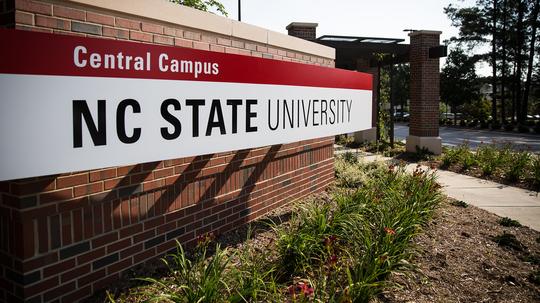
If the idea of a self-driving vehicle zooming down the interstate and trying to reach the offramp at rush hour scares you, you’re not alone.
The autonomous vehicle market is projected to eclipse $724 billion by 2027, according to a report from Emergen Research, but the idea of driverless cars navigating real-world traffic scenarios still gives a lot of people pause.
A group of researchers at North Carolina State University is trying to break down those scenarios — one piece at a time. Ali Hajbabaie, corresponding author of a paper on his team's project and an assistant professor of civil, construction and environmental engineering, hopes the research shows the technology can be trusted in a real-world scenario.
Hajbabaie has been researching traffic systems and how to integrate new technology to make the system safer. He said there are a lot of advantages in what new technologies will be capable of. Connected vehicles, for example, can observe traffic, sharing information to make driving safer. But it’s the complex scenarios, the lane changes and the exit ramps, that causes hesitation for people. So his team broke down the problem with software that allows for an animation, a simulated environment of what’s happening on highways.
Breaking down a complex traffic scenario like mergers in a simulated environment simplified the process for the technology. The team used a cooperative distributed algorithm and broke it up into “sub-problems.” Each sub-problem was then sent to a different processor to solve separately. The process, called parallelization, improves efficiency and safety.
Right now, the technique has only been tested in simulations where the individual problems are shared in the same computing system. But if autonomous vehicles were to ever apply the research to the road, vehicles could network with each other and share the computing sub-problems.
While commercialization is definitely a goal, no conversations have happened yet with automakers about the technique, Hajbabaie said. But he hopes that by making the research available, the team can show what’s possible.



